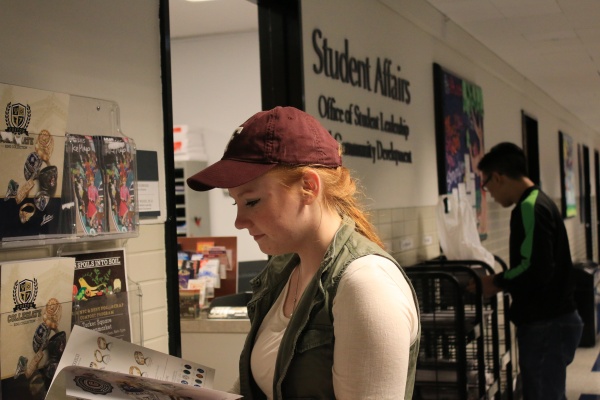What Makes College Worth It?
October 1, 2015
There are six experiences that the most successful college graduates all shared during their academic experience, according to the New York Times and a Gallup-Purdue Index report. The most successful graduates developed a relationship with a mentor, had professors that cared about the student, had professors that made the student excited about learning, had a job or internship that corresponds to the student’s studies, worked on a project for class that lasted an entire semester or longer and was deeply involved in a campus organization or activity.
The report finds that it matters less which institution a student attended and more what that student experienced while at an institution that impacted their own perceived fulfillment in their lives after graduation. Emphasized in the report’s findings was the student’s role in getting the most out of their education, “What college gives you hinges almost entirely on what you give it.”
So how can Fordham students make the most of their Fordham education and what do the Fordham administration and professors do to provide an environment for this to take place?
John Seitz, a professor of theology at Fordham, describes learning as something to approach with eagerness and enthusiasm, which he himself actively tries to provide for his students, and that passivity in one’s studies is where one misses the opportunity to embrace the gift of education. “If you can have some kind of enthusiasm about learning, that’s a gift that will shape your entire life beyond the individual facts your learning in my classroom – or any classroom. The bigger goal is to inculcate that deep curiosity and eagerness to continue to learn and to be changed and challenged by what you encounter in the world.” He said “you have to be ravenous in your approach if you want to succeed.”
To successfully pursue education, according to Seitz, a student must be willing to find answers for themselves, ask their own questions, and challenge the status quo and think critically about it. The best students are those who are “Asserting themselves and taking ownership of their own education.”
Outside of the classroom, a successful student in the eyes of Dean Eldredge, dean of students at Lincoln Center, is one who is engaged and involved. “We try to structure so much of what we do in student affairs to make getting engaged and involved as easy and inviting for students as possible.” In order for a student to have success after graduation, Dean Eldredge said, “First and foremost, they need to pay attention to their academics, they need to be a strong student and they need to select a course of study for a purpose.” He strongly suggests that a student gets involved on campus as it “improves your social life, time management and you learn some skills. You learn how to budget, how to program, how to interact with people, how to communicate and how to resolve conflict.” This involvement and engagement fosters “a sense of the other and care for the other. I think that comes with getting involved in activities because a lot of times you’re doing something for other students.”
Some Fordham students see the six experiences as something that is self-actualized by the student. Dan Wilson, a junior philosophy major and music minor who has had all six of the experiences that the report outlined agrees that the worth of college is dependent on what the student puts into it. “For the most part it’s all self motivated, it’s been me that’s had to create these experiences,” he said. “Fordham has definitely provided the resources and experiences necessary, and it’s up to the student to take advantage of that. I think the university should take a more active role so that the students know about these opportunities and emphasize the importance of taking advantage of these resources.” When asked what he thought set Fordham apart from other universities, he pointed to the core curriculum and that it has allowed him to take classes in fields and from professors that he otherwise would not have, “I wouldn’t be a philosophy major without it.”
Emma Wallace, a junior English major who has also had all six of the necessary experiences said, “As far as internships and extra projects, Fordham makes it really difficult. There are a lot of hoops you have to go through to get an internship that corresponds to your major and that counts for credit for your major.” This student also feels that “Fordham makes it too difficult for clubs and organizations to operate due to restrictions and unnecessary procedures.” Because of this the student feel that, “there’s no campus culture so the only thing we really do on campus is go to class and that makes us have stronger relationships with our professors who are really what makes us successful after graduation – the professors.”
Some students still believe that a school’s name carries enough weight to have as much to do with their success after graduation, and is worth as much as what the school offers and what the student experienced in college.
What one experienced in college certainly varies between each student. Even at the same university not all students are exposed to the same classes or professors or involve themselves in the same campus activities or extracurriculars in the same ways. This validates the notion that “What college gives you hinges almost entirely on what you give it.” However, only if the student adequately involved themselves in their studies and took advantage of what was offered by a university will college – or Fordham – be “worth it.”













